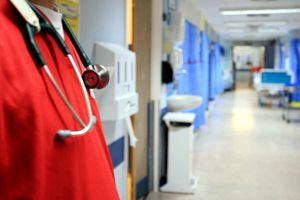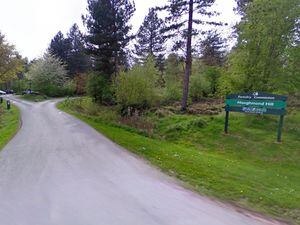Shropshire baby deaths: Expectant mothers sent letter of reassurance
Expectant mothers have been sent a letter from Shrewsbury and Telford Hospital NHS Trust following the news that it will be investigated over a number of deaths of newborn babies.

Health Secretary Jeremy Hunt has asked for baby deaths in Shropshire to be investigated and the trust will be asked to prove the deaths were properly looked into, amid claims of a 'cluster' of nine deaths between September 2014 and May 2016, of which seven were avoidable, according to inquests.
Now, mothers due to give birth at the trust's hospitals have been sent a letter assuring them of the action being taken.
Many people have taken to social media to share the letter after it was received.
The letter says: "It is our firm belief that our service provides safe care for women and their babies. This has been supported by the findings of a number of reviews that have taken place since 2013 and through on-going learning and improvement work.
"More than 40,000 babies have been born at our trust since 2009/10 but sadly during that time there have been a small number of deaths which investigations have found could have been avoided.
"We know that any loss of a baby is devastating for the family involved and each of these incidents have been investigated - and reported publicly at board meetings - to ensure the trust can continue to learn and develop its services to ensure they are as safe as can be."
Fetal heart monitoring and the misinterpretation of cardiotocographs, CTGs, has been widely reported among the key failings in a number of the deaths.
The letter adds: "Nationally it is known that fetal heart monitoring is one of the largest areas for improvement within midwifery and obstetrics and it is important that we as the NHS as a whole take action to improve this area.
"Within our hospital we have taken a number of steps to improve fetal heart monitoring including supporting midwives to attend training over two days at a CTG master class. We have purchased new software and hardware which will allow us to review CTG traces remotely whilst a woman is in labour. This regular 'fresh eyes' approach has been shown to reduce the chance of the tracing being misread, by using additional reviewers without disturbing the woman in labour.
"Even today, pregnancy still comes with risk, but we endeavour to remove all of the risks we possibly can. We would like to again reassure you that our service is safe and we have learnt, and continue to learn, from these case and are continually striving to improve where needed."
The future of maternity units at the trust are currently under review, with smaller units facing night-time closures.





